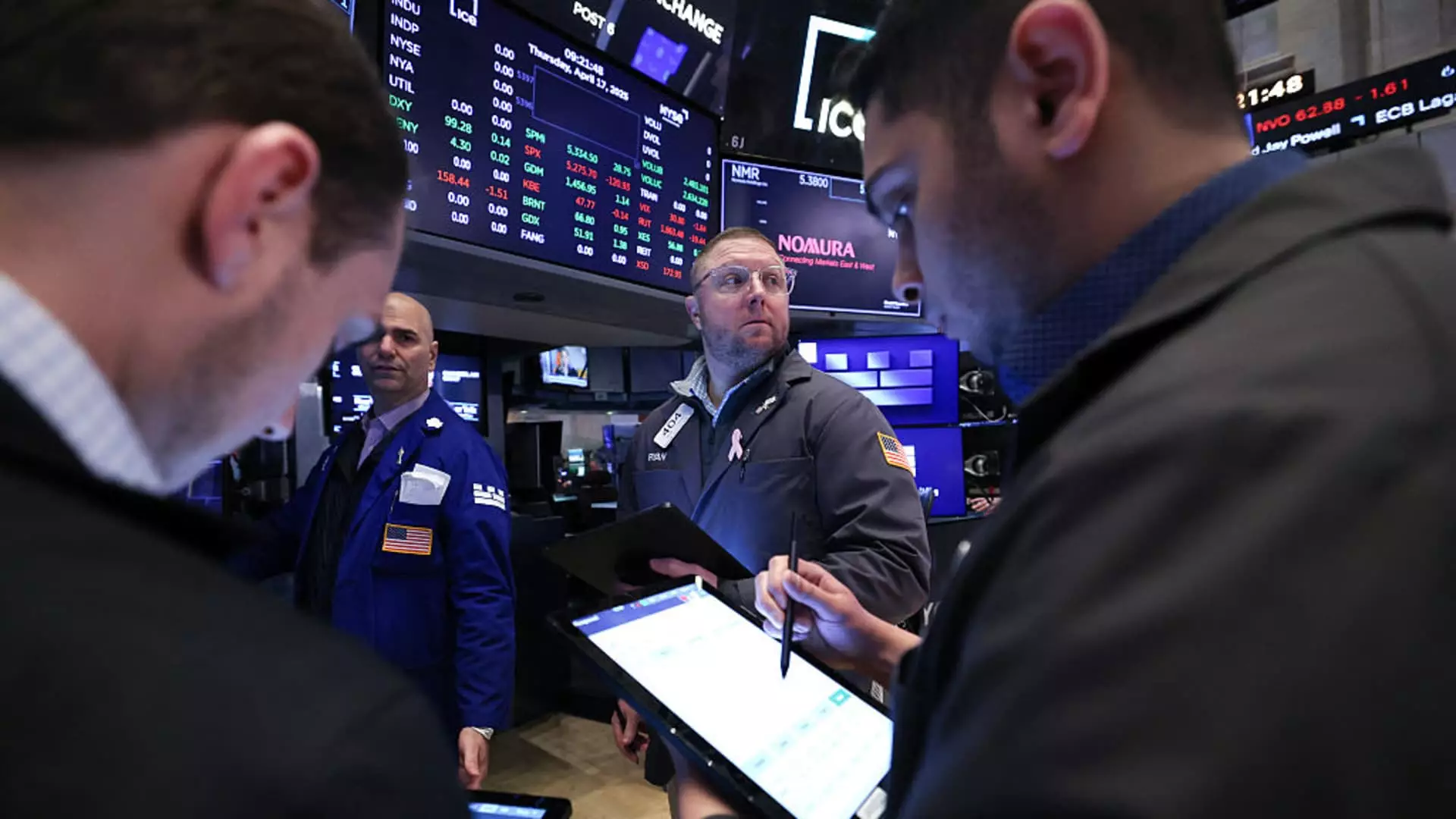In an analysis that cuts to the core of America’s economic vitality, Torsten Slok, Apollo Global Management’s chief economist, raises an alarm bell regarding the U.S. economy’s trajectory. His unequivocal stance predicts doom in the form of a recession if existing tariffs linger at the current levels. An overwhelming 90% probability that the U.S. will face a two-quarter contraction in economic output paints a stark picture for 2025 should the status quo regarding tariffs against China continue unabated. To dismiss his claims would be naïve; the repercussions of such economic policy decisions are monumental.
What we are witnessing is not merely a speculative forecast but a potential disease that is progressively undermining the economic fabric of the nation. The high tariffs instituted with ruthless fervor pose an existential threat, particularly to small enterprises—the backbone of America’s workforce. Slok’s pronouncement that these tariffs create an unsustainable burden for small businesses necessitates immediate acknowledgment. They demand the urgent attention of policymakers who seem disconcertingly detached from the implications of their decisions.
Tariff Warfare: A Small Business Crisis Awaits
The implications of maintaining these tariffs are disastrous. Small businesses, most lacking the liquidity to weather such a financial storm, face an existential crisis that could wipe many off the map. Slok’s assertion that we could see a “bankruptcy of retailers of very significant magnitudes” is not hyperbole; it is a forecast rooted in reality. An economy that crushes its small businesses does not merely affect owners but devastates communities and ripples through the job market.
Consider the data: small firms are the largest employer, constituting around 80% of total U.S. employment. The heartbreak is not merely economic; it’s personal, affecting the livelihoods of millions who depend on these businesses for their next paycheck. When these businesses falter, it doesn’t just hurt the entrepreneurs; it devastates families and upends lives. The anticipated rise in jobless claims will be symptomatic of wide-scale economic disorder that cannot be ignored.
A Dangerous Precedent: Tariffs and the Job Market
What is particularly alarming is the notion that the impact of these tariffs has not yet manifested in unemployment statistics, or at least not visibly. However, it is essential to realize that the effects of such policies often lag, much like the ripple effects of a stone thrown into a pond. The consequences will soon reflect in jobless claims and the overall market sentiment, which could spiral towards despair as workers begin to lose their jobs in increasing numbers.
Expectations that these economic pressures will remain abstract for long are foolhardy. Each day that these tariffs exist imposes unnecessary strain on the job market, particularly as small businesses tackle not just the costs of tariffs, but also their own operational difficulties. This situation will inevitably escalate into larger economic calamity as consumer confidence crumbles, leading to reduced spending and further contraction.
The Uncertainty Spectrum: Forecasting Economic Doom
As Wall Street analysts like JPMorgan’s David Kelly weigh in, claiming a 60% chance of recession depending on the continuation of tariffs, one must question how our financial markets have become so susceptible to policy indecision. There seems to be an alarming inconsistency in economic forecasting amidst volatile tariff policies. The frequency of tariff changes does more than just confuse; it undercuts stable forecasting and obliterates investor confidence.
The current administration must recognize that economic stability is not merely a luxury but a necessity. The fact that we find ourselves potentially spiraling into a recession stems from a disconnect rather than an absence of forethought. Economic policies should aim to fortify, not fragment, the incredibly nuanced ecosystem of small businesses, employees, and consumer stability.
The Crucial Call for Responsible Economic Management
In this pivotal moment, a united call for immediate adjustments to current tariff structures is not just warranted, it is essential. Policymakers must grasp the profound impact these tariffs wield over small enterprises and the overall economy. Sacrificing small businesses on the altar of political maneuvering is a colossal error. A recalibration is needed that prioritizes robust economic health over short-term political gains.
As we stand on the brink of possible economic turmoil, the insights drawn from Slok’s predictions should not be trivialized. Instead, they must compel us to reconsider the policies that govern our economic landscape. In the struggle between political ambition and economic prosperity, one must unequivocally prioritize the latter. The clock is ticking—changes must come, and they must come quickly.

